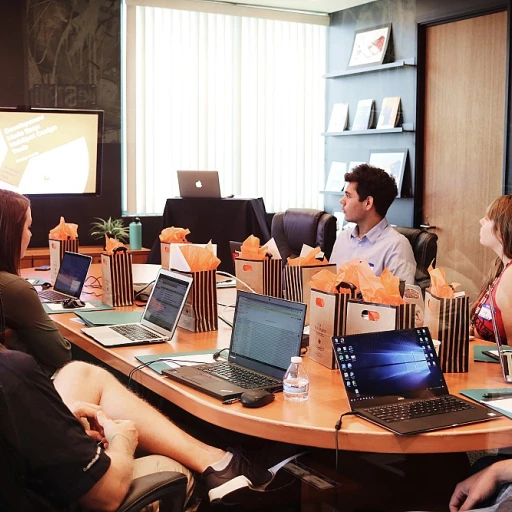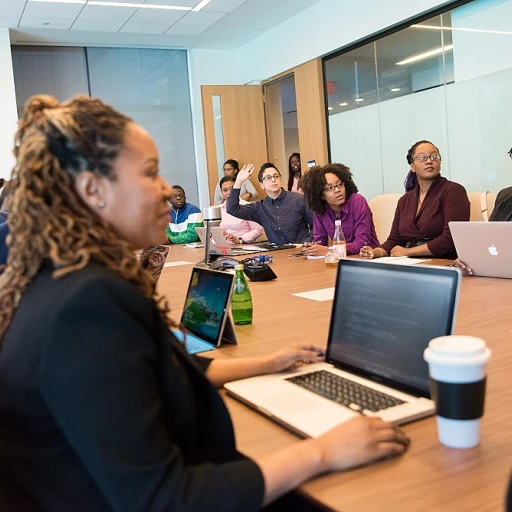
Recognizing Age Bias in Arabian Emirate Companies
Identifying the Prevalence of Age Bias in Construction
In the bustling economic landscape of the Arabian Emirates, the workplace environment is a melting pot of cultures and age groups. However, in a company striving for superiority, it is crucial to acknowledge age bias—a prevalent issue that can silently impact employment relationships. Age bias is the unjust treatment or stereotype one might encounter in the workplace based on their age, often swinging both ways between older employees and their younger counterparts. It’s subtle yet pervasive, often leading to a hostile work environment where employees might feel undervalued. Modern digital trends have enabled younger workers to adapt swiftly, whereas older workers could face unwarranted judgments about their technological adeptness. While one might argue that the concept of ageism is universal, the cultural context within Arabian Emirate companies adds another layer of complexity. Traditional perspectives sometimes favor younger employees for new roles or promotions, possibly overshadowing the experience older employees bring to a job. This form of discrimination age tendency not only adversely affects the workplace but can also lead to legal complications for employers. The impact is far-reaching, affecting gains and productivity, which aligns closely with employee morale. Without addressing these biases, employers risk encouraging a culture where the workforce feels segmented, potentially leading to wrongful termination claims based on age discrimination or other discrimination workplace issues. To foster an inclusive working culture where employees of all ages can mutually thrive, office managers must recognize the signs of ageism workplace subtly creeping in. Addressing and mitigating these biases, as illustrated by the creative approaches to naming meeting rooms in Arabian Emirate companies, can encourage a more harmonious employer-employee relationship. Moreover, understanding and implementing strategies to counteract age bias is an essential step towards enhancing overall job satisfaction and ensuring compliance with employment law standards.Common Age Discrimination Examples
Instances of Discrimination in Age
In the context of Arabian Emirate companies, numerous instances of age discrimination can be observed. Recognizing these signs is crucial for organizations to foster a more balanced and fair workplace environment.- Recruitment Bias: Frequently, older employees encounter bias during the hiring process, as employers tend to favor younger employees, under the assumption they possess more contemporary skills.
- Limited Promotion Opportunities: Older workers might find themselves excluded from promotion opportunities due to preconceived notions about their capabilities or longevity at the company.
- Hostile Work Environment: An ageism workplace can manifest through derogatory comments or jokes, creating a hostile environment for older workers. Such behavior can negatively impact older employees' morale and overall job satisfaction.
- Layoff Disparities: Companies sometimes engage in wrongful termination of older workers under the guise of restructuring, disproportionately affecting them compared to their younger counterparts.
Impact on Employee Morale and Productivity
Effects of Age Bias on Workplace Environment
Age bias is more than just a moral or legal issue; it directly impacts employee morale and productivity within Arabian Emirate companies. When ageism occurs, it creates an unsupportive and sometimes hostile work environment affecting both older and younger employees.
It's crucial to understand how age discrimination can sap an employee's motivation. Employees who perceive that they are being discriminated based on age may experience a decline in confidence, leading to lower productivity levels. This is particularly true when older employees feel sidelined in favor of younger workers, creating a rift in team dynamics.
For employers and office managers, it is vital to address and rectify these issues promptly. This not only ensures compliance with employment laws such as the Age Discrimination in Employment Act (ADEA) but also supports a cohesive and productive workplace.
Failure to address age-based issues can result in increased turnover rates. Employees dissatisfied with a hostile work environment are more likely to leave, further affecting company costs related to recruitment and training of new staff. Additionally, companies may face discrimination claims that can tarnish their reputation and lead to legal consequences.
An important step in mitigating the effects of age bias is leveraging efficient commodity management solutions to boost overall organizational efficiency, indirectly contributing to a positive and inclusive work climate.
Legal Framework and Policies
Ensuring Fairness with Legal Frameworks
In recent years, combating age discrimination in the workplace has become a pressing issue for many companies in the Arabian Emirates. Employers and workers alike are becoming more aware of the critical need to address ageism and its detrimental effects. It is essential for companies to navigate this complex landscape by understanding the legal frameworks that address age-based biases and discrimination.
Internationally, laws such as the Age Discrimination in Employment Act (ADEA) have been established to protect older workers from age-based discrimination. While employment laws in the Arabian Emirates may differ, these global standards provide a useful benchmark. Companies operating within the Emirates must familiarize themselves with both local and international laws to effectively handle claims of age discrimination.
Employers need to be vigilant in recognizing signs of ageism within their organizations. Discrimination claims, such as wrongful termination based on age or creating a hostile work environment for older employees, can lead to serious legal repercussions and damage to the company's reputation.
Moreover, it is crucial for employers to implement policies that explicitly prevent discrimination in the workplace. This includes ensuring that older and younger employees are given equal opportunities for job advancements, receiving training, and participating in company meetings. By instituting these practices, companies not only comply with legal requirements but also foster a more inclusive and diverse workplace culture.
Strategies for Office Managers to Combat Age Bias
Implementing Practical Measures Against Age Discrimination
For office managers in Arabian Emirate companies, addressing age bias and fostering a fair workplace environment involves proactive strategies. It's crucial to recognize the negative impact ageism can have on both employees and overall business operations.- Assess and Revise Company Policies: Conduct an internal review of existing employment and HR policies to ensure they promote equality and prevent age-based discrimination. Such policies should cover hiring, training, promotions, and terminations.
- Facilitate Open Communication: Encourage employees—both older and younger—to voice their experiences and concerns regarding any perceived ageism. Creating platforms for feedback can help identify problem areas and foster mutual understanding.
- Training and Awareness Programs: Educate employees and managers on the nuances of age discrimination, the benefits of a diverse age workforce, and the negative outcomes of bias. Training sessions can enhance awareness and reduce ageist stereotypes in daily interactions.
- Promote a Diverse Workforce: Celebrate the diverse range of perspectives and experiences older workers bring. Allowing younger employees to learn from older colleagues can create a collaborative environment that respects and leverages age diversity.
- Equal Opportunities: Implement developmental opportunities for all workers regardless of age. This includes equal access to training, growth, and promotions, thus preventing any age discrimination employment claims.
- Regular Monitoring and Reporting: Establish clear reporting mechanisms for discrimination work complaints. Regular monitoring can identify discrimination workplace patterns and ensure fair addressal.
Promoting an Inclusive Workplace Culture
Encouraging Diversity and Inclusivity
To create a work environment free from age discrimination and ageism, it is crucial for office managers to promote diversity and inclusivity. Acknowledging the value that both older and younger employees bring to the workplace is key. Encourage a culture where diverse perspectives are valued, and different ages can collaborate effectively.
Implementing Age-Inclusive Policies
In addressing age bias, employers should establish clear policies that support age inclusivity. These policies should outline acceptable behaviors and provide a framework for reporting and addressing discrimination claims. By doing so, companies can foster an age-inclusive environment where employees of all ages feel respected and valued.
Training and Awareness Programs
Office managers can organize training sessions to raise awareness about the signs of age bias and age discrimination. These programs can help workers understand the importance of diversity and inclusivity, providing practical examples of age bias, such as wrongful termination or hostile work environments, and ways to prevent them.
Open Communication Channels
Creating an environment where employees feel comfortable discussing age discrimination without fear of retaliation is essential. Encourage open communication channels where employees can voice concerns related to age discrimination or age-based biases. This strategy helps ensure that any issues with age discrimination employment can be addressed swiftly and fairly.
Recognizing the Value of Experience
Recognize and appreciate the wealth of experience that older workers bring to the organization. Companies should see older employees as valuable assets, integrating their knowledge and skills into mentorship roles where both younger and older employees can learn from each other. This approach not only combats age bias but nurtures development and growth within the company.













